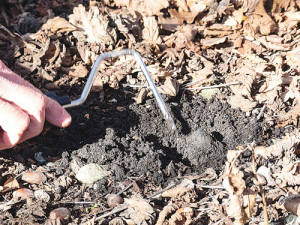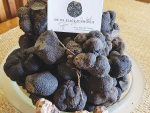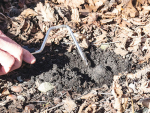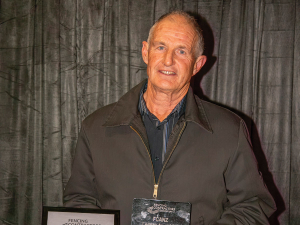George Wilkinson, president of the NZ Truffle Association, says Australia’s production last year was about 20 tonnes.
“Maybe we do half a tonne; that may be pushing it – we don’t know,” said Wilkinson.
And while Australia is exporting to 43 countries, individual NZ growers are sending only small orders overseas and no-one knows NZ’s export total.
Wilkinson says the Truffle Association opted into the Horticultural Export Authority (HEA) system some time ago but small volumes remain exempt from needing export licences. As the HEA website reveals: “Due to the small volumes of exports there are currently no licensed exporters.”
Wilkinson said everything is in place for an export industry.
“We’re probably getting close to it. The biggest problem we have is people giving us the information that we need, to understand whether we have an industry that would lead to export.”
Gavin Hulley of Amuri Truffiere hopes that the association’s annual conference in August will see some moves towards setting up a joint export structure.
“There’s been lots of talk about collective marketing. I think it’s definitely the way to go; it’s going to happen. The market is still out there; we’ve just got to get together and make enough to make it viable.”
While most growers still treat truffle growing as a sideline, Kings Truffles, at Waipara, is believed to be NZ’s only fully-commercial stand-alone truffle operation. At 40ha, it is also thought to be the biggest.
Kings Truffles founder Bill Lee will speak at the August conference, with the message that truffles are a viable industry. “There’s a lot of angst and disillusionment at the moment because they are tricky little buggers to grow.”
But he says he is now happy with his operation after “a fair bit of trial and error”.
Quality control and certification make export difficult, as does the Australian competition, says Lee.
He is concentrating on the value-added market rather than raw, with products including truffle butter and a planned truffle honey. He is selling through outlets in San Francisco and Hong Kong.
“Because of the low volumes you’re better to target one or two and serve them properly.”
Lee says a joint marketing structure would be the only way to go “further down the track.”
Meanwhile, Kings Truffles’ website offers to market on behalf of smaller producers.
“Amateurs always think they can do it better for a start, and it’s not until they’ve had the cold hard lick of reality around them that they realise, ‘perhaps I haven’t got the skills to do this’,” says Lee.



















